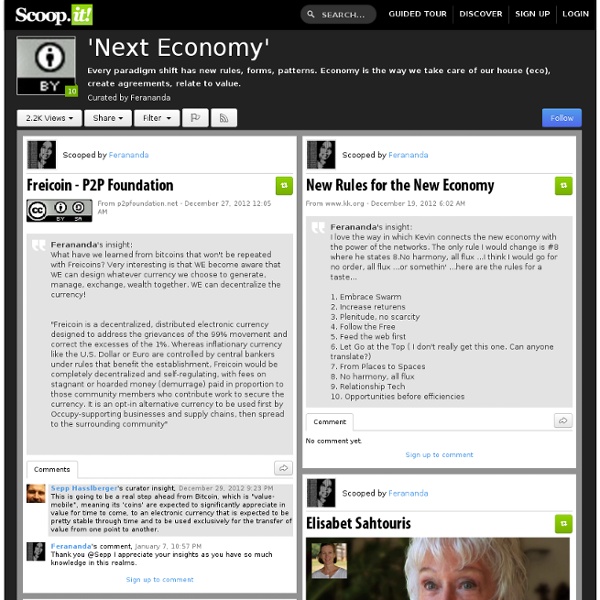'Next Economy'
Cyborg Lives
Knowmads, Infocology of the future
Lifelong Learning
Buiding a better world
Geography Education
Collective consciousness
Augmented Collective Intelligence
Démocratie participative
Nemesis TV
Compassion in Action
Nouveaux paradigmes
évolution ou révolution ?
Related:
Related:



